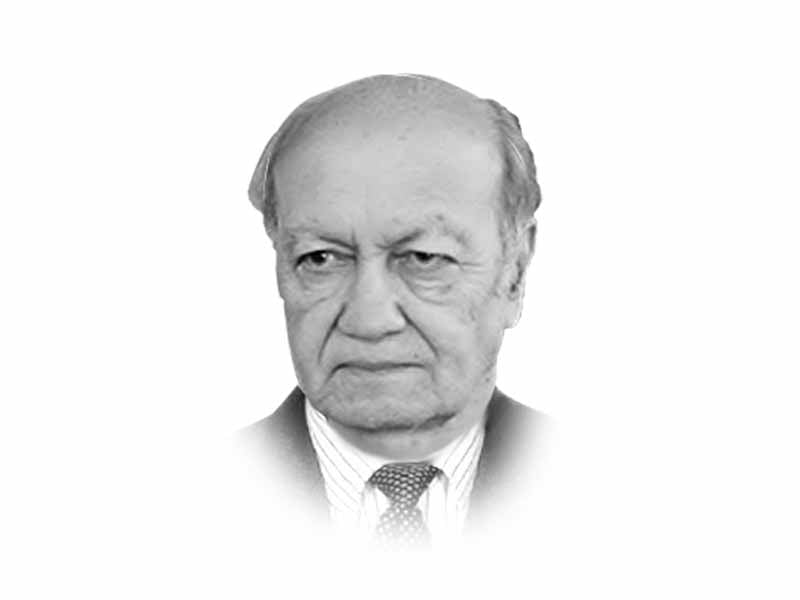
Nations draw strength from cooperating with neighbouring countries, by promoting trade and integrating economies and pursuing common foreign policy goals. It is easier to strengthen bonds if countries have the same or similar political system. Even if that is not the case, common strategic interests make nations work together to enhance their economic opportunities and political influence.
Pakistan has not been fortunate in achieving these goals. On the contrary, its relations with India, its immediate neighbour, are inimical. Its relations with Afghanistan, despite years of support and involvement, remain strained and both countries are unable to draw the full potential benefit in specific areas of security and boosting transit and mutual trade. The causalities occurring on the western Pak-Afghan border should be a source of serious concern. These are also a reflection of the insensitivity of the Afghan government. It is failing to take appropriate measures to disable hostile terrorist groups, especially TTP, that are operating freely from its territory. Adverse security situation is affecting trade and travel that has economic consequences and has the potential of damaging relations between Pakistan and Afghanistan.
While India goes through its national and state elections this year, there is no likelihood of the Indo-Pak relations getting any better. In Uttar Pradesh and Punjab, Modi may step up its tirade against Pakistan to whip up emotions and use it for increasing his party’s vote bank. The scars of illegally demolishing a grand 16th century mosque by a rowdy mob of Hindu fanatics in 1992 continue to haunt the Muslims. On the contrary, in Pakistan an anti-Indian campaign does not influence the voting trends in any significant way.
We can, however, take comfort from having strong economic, strategic and defence-oriented relationship with China. We have not fully benefited or maximised the relationship, and the weakness essentially is on our part. One of the major landmarks of the Pak-China relations is CPEC that remains under-utilised. Apart from improving the security of the corridor we need to expand the range of our products and ensure their quality that meet international standards. As Finance Minister Muhammad Aurangzeb and other economists are pointing out that we need to implement reforms in right earnest, this will also help in overcoming our persistent debt crisis. Living on borrowed money can take us that far and only provides temporary relief but is not a solution.
Of late, the US has been showing interest in improving its relations with Pakistan. Its present focus is in enhancing trade and tourism. Moreover, it is opening up opportunities for Pakistani students in American universities and willing to provide support in the health sector. Clearly, the US is the most attractive destination for higher education, especially in sciences, medicine, engineering and information technology. Lately, the US has been restricting admission of Chinese students in subjects that it considers will contribute to enhancing its defence, economic and strategic capabilities. Chinese students have also sought admission to European universities but are facing similar restrictions. These impediments have led China to build capabilities in its own universities by also utilising those Chinese who have foreign training and experience. In fact, China has already set up several research centres and is endeavouring to stay abreast of technological developments. China has also been cooperating with Russia in several critical fields of defence and space.
Pakistani students in large numbers are attending Chinese universities. Language is a barrier but simultaneous translation in English does help.
Drawing lessons from our own experience and those of other countries, Pakistan apart from building its own capabilities should assimilate new technologies and manufacturing systems. For building indigenous capability we have to considerably improve our education system with a strong bias in science and engineering. We should also focus on setting up industrial and technology centres that are compatible with present requirements. This will require long-term planning and implementation and a broad consensus among major political parties and the military leadership. The present and past governments have not given sufficient attention to these priority areas further slowing down progress and increasing the burden of poverty on our people. If the leadership of major political parties is not even on talking terms with each other and parliament is partly dysfunctional, how can it be expected that a consensus will be developed with the opposition on these critical issues? All these weaknesses indicate how Pakistan as a country and its people are suffering due to political infighting and a lax culture while the world and countries even in South Asia are moving ahead.
How can Pakistan correct course and what means be available to it for bringing about the change? Is the civil society in a position to lead a sustained movement for change? It does not seem so. Lately, protests have taken place by political parties and civil society raising specific issues but no internal measures or mass movement has taken place to correct politics and economy on the right lines. Suppressing PTI and practically disintegrating the party has harmed democracy, which already is very weak. It has lowered the country’s image abroad and inculcated a sense of despondence among a large cross-section of the people especially among PTI’s electorate.
In this complex scenario the onus of correcting course and stabilising the country primarily rests with the party in power.
The fighting between major political parties that pervades present Pakistan is another barrier and makes it difficult for the parliament and the government to function efficiently. But no serious effort in this direction seems to be in the offing. In any case with such diverse interests, reconciliation and finding a common course by major political parties to put the country on the path of stability and progress will not be easy.
The visit of the Iranian President to Pakistan augurs well but requires deft handling in view of the multiple sanctions that the US has imposed on countries engaging with Iran. India has brazenly defied US directives and consummated major oil deal with Iran.
Pakistan too will have to honour its commitment with Iran to construct Iran-Pakistan gas pipeline despite the US threat of sanctions amid fears of potential $18 billion penalty for failing to complete the project on time.
Published in The Express Tribune, April 24th, 2024.
Like Opinion & Editorial on Facebook, follow @ETOpEd on Twitter to receive all updates on all our daily pieces.




























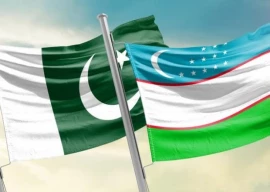
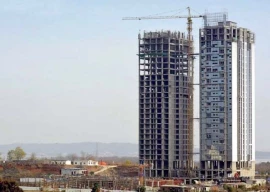
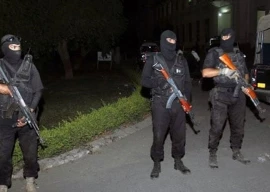

1714819959-0/Untitled-design-(21)1714819959-0-270x192.webp)
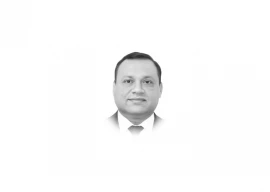





COMMENTS
Comments are moderated and generally will be posted if they are on-topic and not abusive.
For more information, please see our Comments FAQ